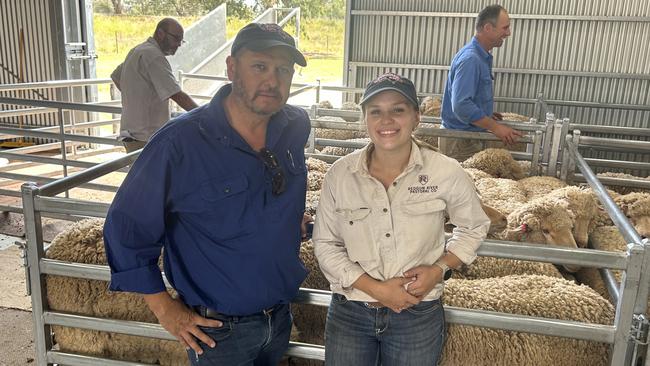Genetics prove key to sheep profit success
The Australian Merino Production Trial has evaluated 50 different flocks to try to find some of the secrets behind the most successful breeders.
The average sheep value in the Australian Merino Production Trial ranged from $143.77 to $192.79 across 50 evaluated flocks, highlighting the importance of genetics as a profit driver.
Data was collected to assess wool value, and fleece returns to gauge an average sheep value across a selection of 730 wethers.
Trial manager Craig Wilson of Wagga Wagga said there were 50 flocks evaluated to represent 32 different bloodlines, and while it was fair to say the sheep industry can cop negativity for profit woes, there were certainly some positive outcomes.
“The sheep and wool industry is an easy target in some ways,” he said.
But using the data as a guide he said there are gains to be had.
One metric that showed performance was the fact the top team entered had sheep with an average wool value of $84.65
“When you see the data you can pretty quickly work out that some flocks aren’t making money. But others are,” Mr Wilson said.

The top team in the trial was entered by the Glasson family of Jimenbuen Pastoral Company of Dalgety, NSW.
The Jimenbuen wethers returned a total sheep value of $192.79 which was made up of a wool value of $84.49, and a meat value of $108.30.
The Glasson family’s entry in the trial was using their own genetics with rams bred at Jimenbuen.
In identifying high-performing genetics he said the Pastora Merino Stud from the Eastern Riverina was the bloodline in three different entries and all of those were ranked in the top 10.
Mr Wilson has been running trials for more than 20 years and the next one will start in April.
He said seeing the data come in was the real value. “You can see sheep side by side but then when the data comes in there is a $15 to $20 difference in value,” he said.
“This year the teams have averaged 17.6 micron, with the range being 16.2 micron to 21 micron. The micron testing results also showed that there is consistency for the wool results over the past two years.”
Mr Wilson said one of the biggest messages was the fact it didn’t cost anymore to run good sheep compared to ordinary quality.
FarmLink principal research and extension manager, Dr Sue Hatcher said the data shows variations between these 50 flocks in wool production, wool quality and growth and how these production differences translate into dollar returns for producers.
Moses and Son managing director Marty Moses of Temora, NSW said from a wool producers perspective the trial highlights the profitability difference across the different genetics.
“From our own experience, we use the trial as a litmus test to see how we are tracking against our breeding objectives. We see it as a roadmap to achieving high performing genetics.”




